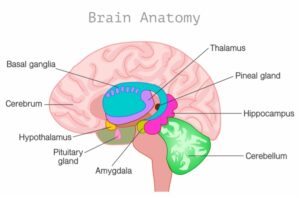Written by Dr. Nicole M. Vienna
January 26, 2022
We detected that you're using an older version of Internet Explorer. please upgrade IE 11 or later
Alternatively, you can install and use these secure and newest browsers: Chrome | Firefox | Safari for MacOS | Edge for Windows
Written by Dr. Nicole M. Vienna
January 26, 2022

Childhood can be a fun yet challenging time. Children are tasked with learning new skills during every stage of development. And some children may struggle and encounter difficulties in mastering new sets of skills. Difficulties can be attributed to numerous reasons and often a combination of reasons. For example, obtaining a brain injury very early in life, experiencing seizures, or being exposed to lead, drugs, alcohol, or other teratogens can impact a child’s ability to learn and master developmental skills. Sometimes, the difficulties go unnoticed until the child is in school around peers. Only then do parents notice their child might be behind and immediately want to get help. In other situations, parents and caregivers can readily see the child’s problems but feel helpless or do not know how to help the child. Therefore, a great and efficient way to understand a child’s struggles and obtain an evidence-based treatment plan to improve their quality of life is to seek a neuropsychological evaluation.
A neuropsychological evaluation assesses a child’s cognitive skills, including:
The evaluation process includes clinical interviews, collateral interviews with family and treatment providers, questionnaires and symptom inventories, paper-pencil testing (some now available on the iPads to keep the child’s interest!), review of academic, psychiatric, and medical records, data analysis, and a report that details the findings. Such a process can assist with identifying your child’s cognitive strengths, areas of challenges, and an overall treatment plan to help improve their quality of life. To that end, it is essential to select an evaluator specializing or having extensive training and experience with children/adolescents because pediatric neuropsychological evaluations require a different interpretation of results compared to adults due to the respective differences in developmental maturation.
Neuropsychological testing with children can take more than one session depending on your child’s effort, motivation, attention, and emotional stability. This is quite ok! The evaluator will note it as it is considered helpful information in understanding your child. A review of the general process is described below.
The conditions listed above can cause changes to various areas of a child’s cognitive and emotional/behavioral functioning. If you notice any challenges or differences in your child’s memory, learning, thinking, planning/organizing, language, etc., it would be helpful to seek a neuropsychological evaluation.
During this age range, the littles’ brains are undergoing rapid development. This development includes a significant amount of cell division and proliferation in regions such as the forebrain (cerebral cortex, hippocampus, basal ganglia, hypothalamus, thalamus, olfactory bulb). This activity is then followed by a course of neuronal migration, a fundamental process for the development of the central nervous system. This stage is when functioning neuronal circuits begin to assemble in an orderly fashion. However, any insult or defect (i.e., teratogens like alcohol, drugs, lead, brain injuries, etc.) during the neuronal migration can be detrimental and result in a neurological disorder.

Along with rapid brain development comes the challenge of putting that new equipment to work to learn and master skills. During this age range, children are learning to master communication. This includes speech and language. Children use these skills to make their needs known and describe their feelings. But often continue to communicate through their play until they gain efficient verbal skills. Even then, it may take some time until they learn more about emotional regulation, which usually comes around the ages of four to five years old. When children are deficient in speech or communication or are delayed, an evaluator may suspect their impairment is due to a communication disorder or autism spectrum disorder. Both are considered neurodevelopmental disorders as the atypical development occurs during these developmental years.
During this precious developmental period, littles face other challenges: mastering regulating their emotions and behavior and academic achievement (basic tenants of reading, writing, mathematics). This is where teachers, parents, and evaluators might suspect neurobehavior disorders like ADHD, oppositional defiant disorders, and learning disabilities. As such, a pediatric neuropsychological evaluation would prove extremely useful in finding out what is causing the child’s challenges and difficulties and planning for a course of action to improve their quality of life.
Tweens and teen years are a period known for risk-taking. The adolescent brain development literature has widely researched and discussed that the prefrontal cortex (the driver’s seat for decision-making and judgment and many other executive functioning skills) is the last part of the brain to fully develop. It has also been suggested that the rapid and unique neural mechanisms that underly adolescent brain development contribute to heightened responsiveness to pleasures and risk while the function to weigh consequences and exercise adequate impulse control is incomplete.
During this special development period, tweens and teens learn to master independence both at school and in the home. At school, they may start having difficulties in complex reading/writing assignments or higher levels of math. Similarly, they have problems managing larger-scale projects. At this point, an evaluator may suggest to the parents that the tween/teen undergo a neuropsychological evaluation focusing on executive functioning deficits or learning disorder evaluation if one had not been previously sought.
Because the frontal lobe (largely the executive functioning system as it connects to the limbic system) is also responsible for reading, regulating, and responding to emotions, many tweens and teens experience problems with navigating their moods and feelings. Not to mention the added biological stressor of puberty! Nonetheless, the increased demands in managing their emotions, balancing parental and interpersonal relationships (social skills), and mastering independence can cause significant stress on the brain. And excessive stress that lasts longer than it should (over long periods) can result in oxidative damage to cells. It can outwardly (behaviorally) be expressed as anxiety, depression, or low self-esteem. Any previously undiagnosed problem only serves to exacerbate their current challenges further. Therefore, a neuropsychological evaluation would be beneficial in addressing your child’s difficulties so they can thrive and move on to the next phase of development- the working world or college!
Juvenile delinquency attorneys may want to obtain a neuropsychological evaluation for their minor client (youth up to age 25) if they encountered or suspected any of the earlier mentioned conditions (brain injury, prenatal exposure to alcohol/drugs, etc.). Such an evaluation may assist in explaining the youth’s thinking and behavior as it, directly and indirectly, relates to the delinquent behavior at hand. In addition, an understanding of adolescent brain development can be particularly informative in forensic evaluations to address areas of competency, culpability, and amenability for the juvenile delinquency courts. For example, is the youth competent to proceed (participation in the adjudicative process). Still, many courts will want an expert opinion on whether or not the youth is amenable to treatment, and if so, what kind? Courts or attorneys will also ask for evaluations to argue the impact of the youth’s maturity (or lack thereof) on their culpability for their behavior or criminal actions. Attorneys need this expert information to practice better law and understand their clients or youth they are prosecuting. And the court needs this information to make sound decisions about a youth’s case.
A special note to prosecutors: a forensic neuropsychological evaluation requires extensive education, experience, and training. Many psychologists who conduct this type of assessment are not qualified to do so. Regardless of if the defense expert is adequately qualified or not, our practice also can review their work. We often are obtained to perform special reviews to ensure fidelity and accuracy. Furthermore, we can help you develop questions for cross-examination.
Childhood is a time of rapid brain development. During these sensitive periods, your child is tasked with learning and mastering different developmental tasks such as communication, regulating emotions, academic achievement, and independence. And there are a variety of uncontrollable and many controllable factors that can insult brain development, resulting in detrimental effects. Therefore, if you notice any changes or delays in your child’s cognitive abilities (thinking, learning, language, etc.), it is important that you seek a neuropsychological evaluation to assess and address your child’s strengths and areas of difficulties. Remember, early intervention is key to a better prognosis.
If you would like to schedule a consultation with Dr. Vienna to learn more about neuropsychological evaluations, contact Vienna Psychological Group at (626) 709-3494.
Baron, Ida Sue. (2018). Neuropsychological Evaluation of the Child: Domain, Methods, and Case Studies. Second Edition. Oxford University Press. New York, New Work.
Grisso, T. and Schwartz, Robert G., (2000). Youth on Trial: A Developmental Perspective on Juvenile Justice. The University of Chicago Press. Chicago.
Rahimi-Balaei M, Bergen H, Kong J and Marzban H (2018) Neuronal Migration During Development of the Cerebellum. Front. Cell. Neurosci. 12:484. DOI: 10.3389/fncel.2018.00484